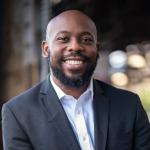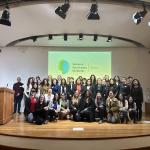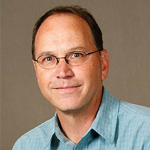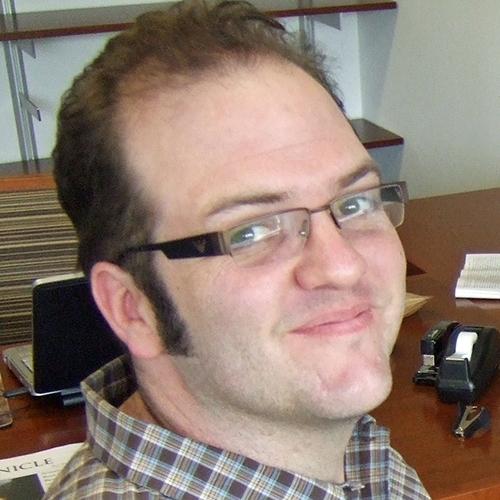War Stories from Tech Policy: Backdoor mandates, the cryptapocalypse, and license plates for drones
Increasingly, policy-making in Washington, D.C., involves high technology, especially computing devices and networks. As a staff technologist, I work on issues of technology policy and digital rights at a non-profit think tank and advocacy organization in D.C., The Center for Democracy & Technology. I’ll explain what a staff technologist does through three examples from my work this past year. First, I’ll describe a technical report I coordinated that was authored by twenty of the world’s top computer security and cryptography experts. The report argued that an FBI-lead effort to mandate backdoors in communications software — “CALEA II” — was unwise and would be ineffective. Second, much of encryption used online was cast in doubt this September when documents leaked by Edward Snowden exposed a systematic effort by the U.S. National Security Agency to subvert encryption software, hardware, standards, and implementations. I’ll describe how we’ve engaged with standard setting entities, executive branch oversight mechanisms, and Congress to advocate for security and privacy through strong encryption. Finally, drones hold great promise for applications that require cheap data collection from an aerial platform; but drones also can be covert surveillance platforms. I’ll describe our efforts to develop a policy proposal for radio-frequency “license plates” for drones that ground-based observers, other drones, and manned aircraft could use to monitor the position and activities of drones in the sky around them..
Joseph Lorenzo Hall is the Chief Technologist at the Center for Democracy & Technology, a Washington, D.C.-based non-profit organization dedicated to ensuring the internet remains free, open, and innovative. Prior to joining CDT in 2012, Hall was a postdoctoral research fellow with Helen Nissenbaum at New York University, Ed Felten at Princeton University, and Deirdre Mulligan at the University of California, Berkeley.
Hall’s current work focuses on policy mechanisms that promote trustworthiness and transparency in information systems, as core functions of society and government become networked and computerized. Hall’s work at CDT is split between consumer privacy, health privacy and national security & cybersecurity. Hall received his Ph.D. in information management & systems from the UC Berkeley School of Information in 2008. His Ph.D. thesis used electronic voting as a critical case study in digital government transparency. In his postdoctoral work, he developed techniques to increase the efficiency and usability of accountability mechanisms in electronic elections. Hall holds master’s degrees in astrophysics and information systems from UC Berkeley and was a founding member of the National Science Foundation’s ACCURATE Center (A Center for Correct, Usable, Reliable, Auditable and Transparent Elections). He has served as an expert on independent teams invited by the States of California, Ohio, and Maryland to analyze legal, privacy, security, usability and economic aspects of voting systems. Hall is the Vice-Chairman of the Board of Directors of the California Voter Foundation, a member of the Board of Directors of the Verified Voting Foundation and a member of the Federal Communications Commission’s Computer Security, Reliability, and Interoperability Council (CSRIC) IV. In 2012, Hall received the John Gideon Memorial Award from the Election Verification Network for contributions to election verification.










